Get your order by Christmas!
Get your order by Christmas!
Wheel Backspacing and Offset Explained
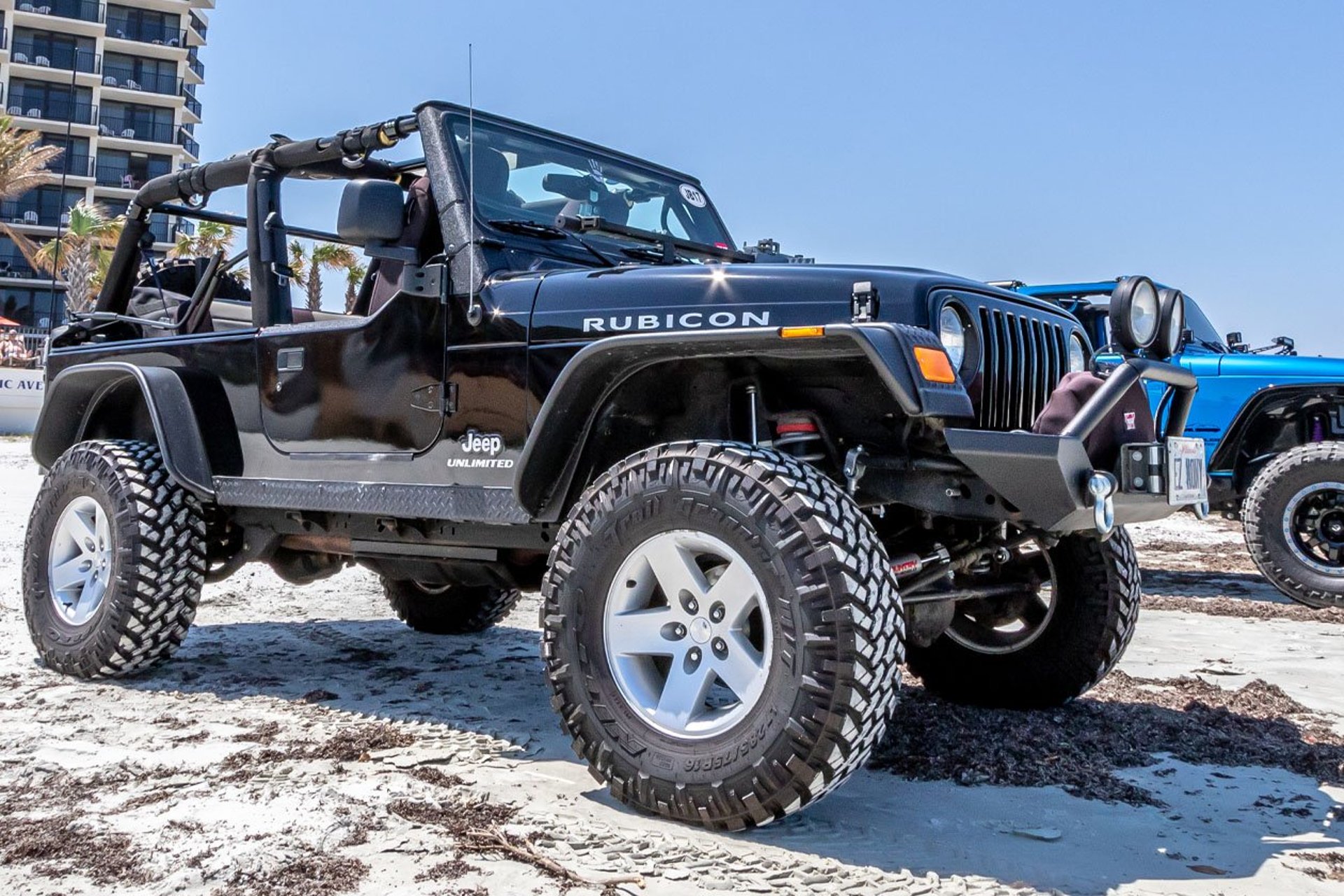
October 21, 2022
4
Wheel
Backspacing
Offset
Backspacing
Backspacing is measured in inches and is calculated by measuring from the mounting surface on the of the back of the wheel to the inside edge of the wheel’s lip. Most vehicles come with high numerical backspacing from the factory. Aftermarket wheels are designed with a slightly lower (numerical) amount of backspacing, which places the tire farther away from the vehicle. For example, a wheel with 4.5 inches of backspacing will push the tire farther out from the vehicle than one with 6 inches of backspacing. Most trucks and SUVs looking to run taller and wider tires need less backspacing than what comes from the factory. This is so the tire won’t interfere with suspension, frame, or body components.
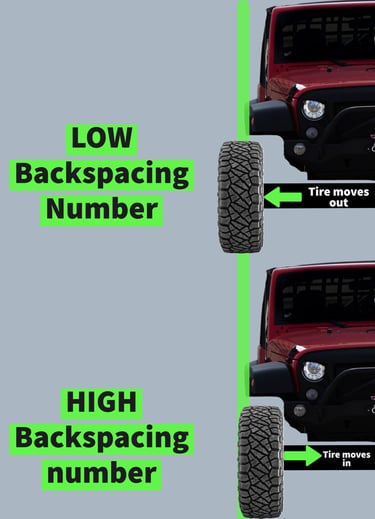
Offset
Offset is measured in millimeters and calculated by measuring from the hub (outside) of the wheel to the centerline. The confusion surrounding offset usually comes from the fact that offset can be negative, positive, or even zero. The big thing to remember here is that the more negative the offset, the further the wheel will sit away from the vehicle. For example, a 20-inch wheel with -44 offset is going to poke farther outside of the fender than one with -11. Positive and zero offset figures are less common in off-road centric wheels.
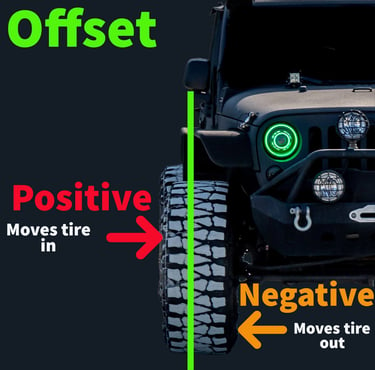
Scrub Radius
Moving to a larger tire puts additional forces in play relative to your suspension. How the wheel is configured can also make a significant difference. Ideally, you want to limit how much you move the tire and wheel away from the vehicle. As you move the tire and wheel further out, it increases the load on your steering components. This can cause premature wear on OE items such as ball joints and tie rods. It can also change the handling characteristics of the vehicle. As you make changes that involve tires and wheels, it's important to address the need for aftermarket products designed to handle these changes.

Weight Matters
Cast aluminum wheels are the mainstay in the aftermarket world. The primary advantage of an aluminum wheel over a steel one is weight. The lighter the wheel, the less of hit to your vehicles performance there will be.
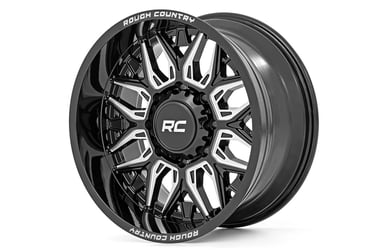
Modern Options
If you’re thinking of upgrading your wheelset, be sure to check out all of Rough Country’s latest wheel offerings ranging from 17-inch to 22-inch wheel sizes. These wheels are designed to work with upgraded suspension systems and have applications for everything from the new Ford Bronco to the classic Ram trucks. Affordable and stylish, Rough Country has a wheel to fit your style and budget.
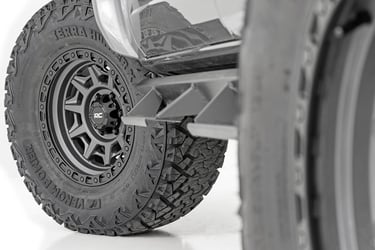
Comments
Ben bisbee
March 15, 2023
Will the 3.5 inch lift for Tacoma make my wheels stick in more or keep factory spec
Reply
Comments (1)
Aaron
April 19, 2025
I have a 1996 Dodge 1500 4wd. I will be putting a 2 inch lift on it. What wheel and tire combination would not be extreme but would appear almost factor. If you have the wheel size and offset and backspacing it would help. Also the tire size. Thanks for your input.
Reply
Comments (1)
Shop By Category
Talk to a Build Expert
- 1-800-222-7023Offline
- Email Us
- Offline
Only the Best
Support Hours
| 7am - 7pm | Monday-Fri |
| 8am - 5pm | Saturday |
| Closed | Sunday |
Customer Service
Company
